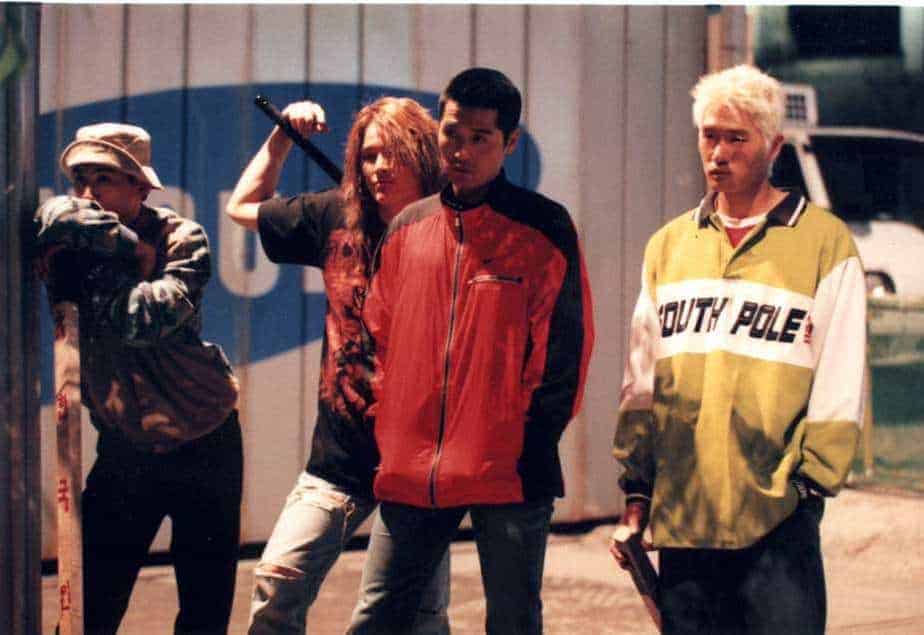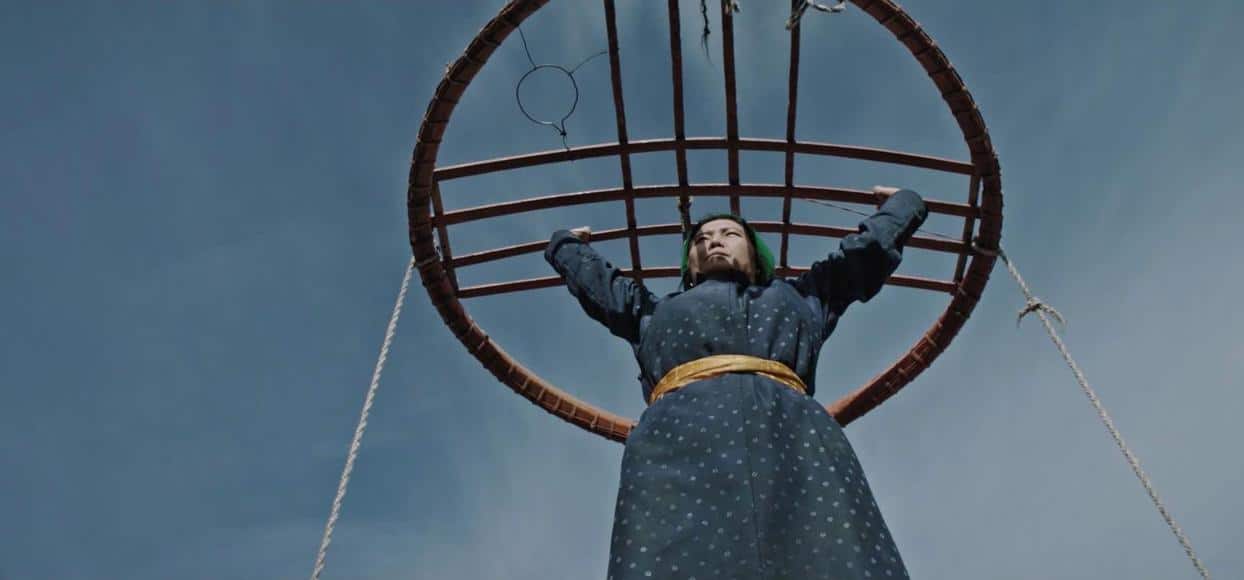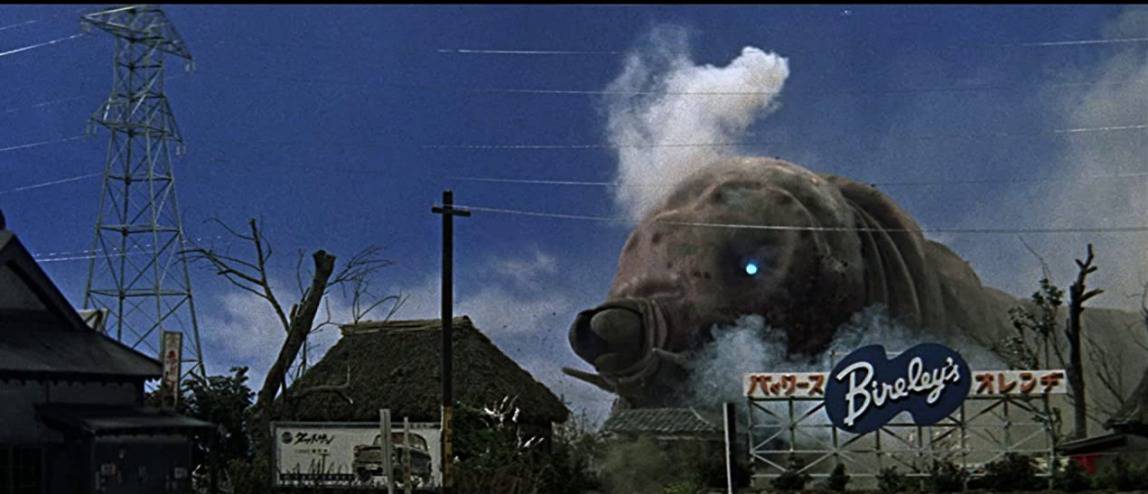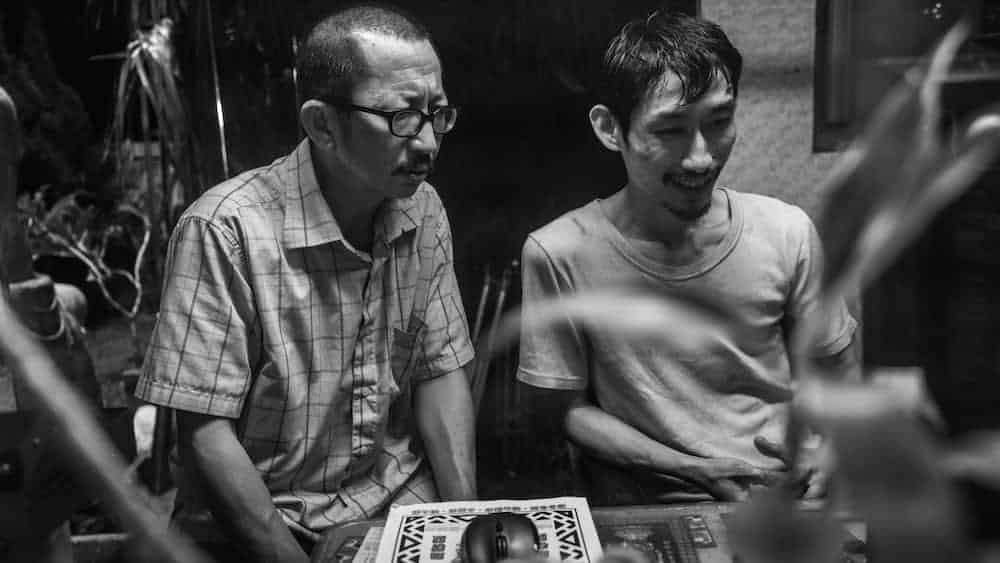The Korean New Wave really kicked off in the late-90s and among the first films to ride it to success was Kim Sang-jin's “Attack the Gas Station!”. It was also among the first instances that western audiences were introduced to comedy as seen in Korea cinema.
Buy This Title
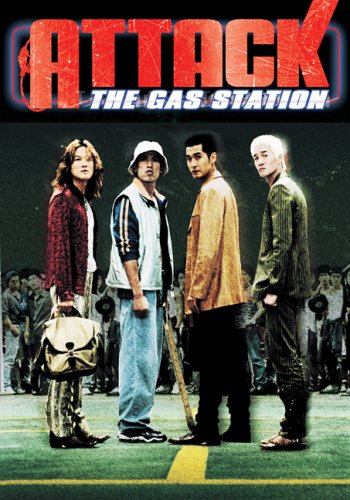
On one boring night, with nothing else to do, four delinquent friends No Mark, Mad Dog, Paint and Entertainer decide to rob a gas station again, one that they had successfully managed to loot once earlier. But once they get there, they find the cash register empty and no money apparently on-site, having been taken away by the Boss's wife. When calls to the wife to come back with the cash prove unsuccessful, No Mark decides to take the Boss and the other employees Hardtack, Nerd and Chick hostage and pump gas through the night to incoming customers and pocket the cash. The night, as expected, is about to prove very long and very interesting for all parties involved.
“Attack the Gas Station!” is, primarily, an anarchist comedy. There's no real reason to most of our protagonists' actions, apart from making a quick buck and causing havoc for their hostages. Set almost entirely in the gas station over one night, the minimalist setting refreshingly still manages to introduce a host of interesting characters outside the initial group, including bullies, other gang members, police officers and delivery boys. As footfall increases, so does the number of their hostages and the interactions between the hostages include some of the movie's funniest scenes. The film's take on customer service and relationship is hilarious and appreciable for anyone who has worked in the field at any point.
With the humour, it also finds time to include a commentary on the systemic failure of the education system for the youth of the country. All four of our leads had hopes, dreams and talents, which were crushed by an overbearing education system and a condescending society in one way or another. There is, thus, a lot of angst not just in the characters but also within the film as a whole, an angst towards the schooling system, towards forced false patriotism of the time, towards materialism, capitalism and towards society and its expectations itself. One would assume that with this, Kim Sang-jin captures the mood and attitude of the Korean youth at the time accurately, considering the economic downturn South Korea was facing in 1999.
While it is fun, fisticuffs and flying kicks for the most part, “Attack the Gas Station!” adds pathos to its middle half and maybe this is where the film falters slightly, making one wonder if it was indeed needed. This not only adds to the runtime, but also slows the otherwise breakneck franticness the narrative had from the get-go. It also has an annoying habit of forgetting certain characters as it goes along, leaving the audience wondering over their outcome. The couple in the boot of the car, for example, are never returned to and Yonggari and his gang are completely forgotten as soon as the woman in the Porsche drives up. The climax, for the most part, makes up for these issues, but once the credits roll, these questions do start to take form.
One of the joys of watching “Attack the Gas Station!” is seeing many now-familiar faces long before they found fame. Lee Sung-jae, who has since been in Bong Joon-ho's debut “Barking Dogs Never Bite”, “Public Enemy” and “Daisy” among others, plays No Mark, the leader of the group. We even have a silver-haired, green suit-wearing Yoo Ji-tae, from before he became the leading man of “Ditto”, “One Fine Spring Day” or imprisoned Choi Min-sik for 15 years in “Oldboy”. Paint doesn't have a very strong character arc, but Yoo Ji-tae makes him memorable with his usual charm and quirky style. Kang Sung-jin as Entertainer and Yoo Oh-sung as Mad Dog round up the gang, with Yoo garnering a smile out of the viewer almost every time he's on screen.
Supporting star cast is also strong, with veteran actor Park Young-gyu as the gas station Boss, who spends the majority of his time trying to repair telephones broken by No Mark and trying to contact the police, to hilarious effect. Jung Joon's Hardtack has the most to do in the supporting cast, going from the bullied to school big dog with the help of his captors and he makes the most of it. Lee Yo-won and Lee Jung-ho play Chick and Nerd respectively but are mostly forgettable, but it is a pre-fame Yoo Hae-jin who, as has become the norm by now, leaves the biggest impression as gang leader Yonggari.
The biggest reason “Attack the Gas Station!” has remained such an iconic moment for Korean cinema is the spectacular cinematography by DOP Choi Jung-woo. It features then-unseen tactics like the revolving camera (on which the film opens), odd camera angles, extreme close-up shots (even taking the camera under a car with No Mark), trunk shots and hyper-fluidic camera movements to give it a very distinctive and memorable look. The film's music also makes for a memorable listen, with everything from pop music, punk rock and even an on-screen rap performance adding to the film's 1999 setting.
21 years since its release, “Attack the Gas Station!” has lost none of its original charm. Its fun, frantic and furious nature has only consolidated its cult status over the years. Though many have tried to replicate it in various ways, few have even come near to what Kim Sang-Jin and his crew have managed to achieve here. All that remains to be wished for is someone to restore this classic for the modern day in high-definition, for a whole new generation of audience to discover and love.


